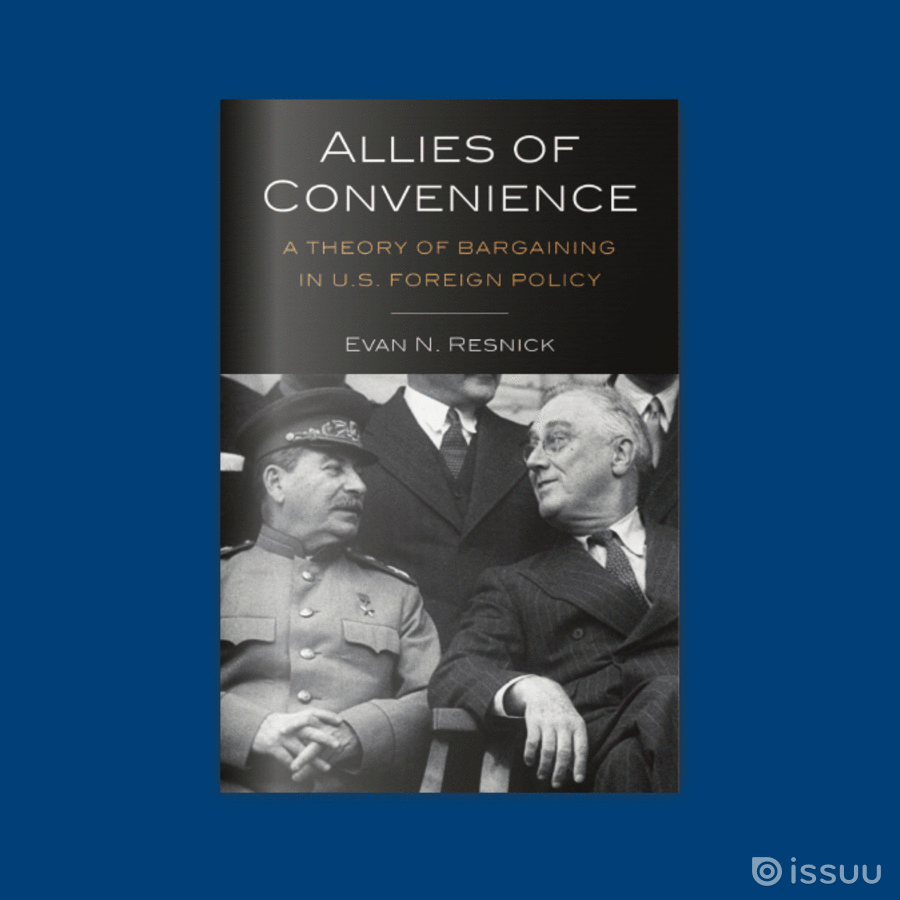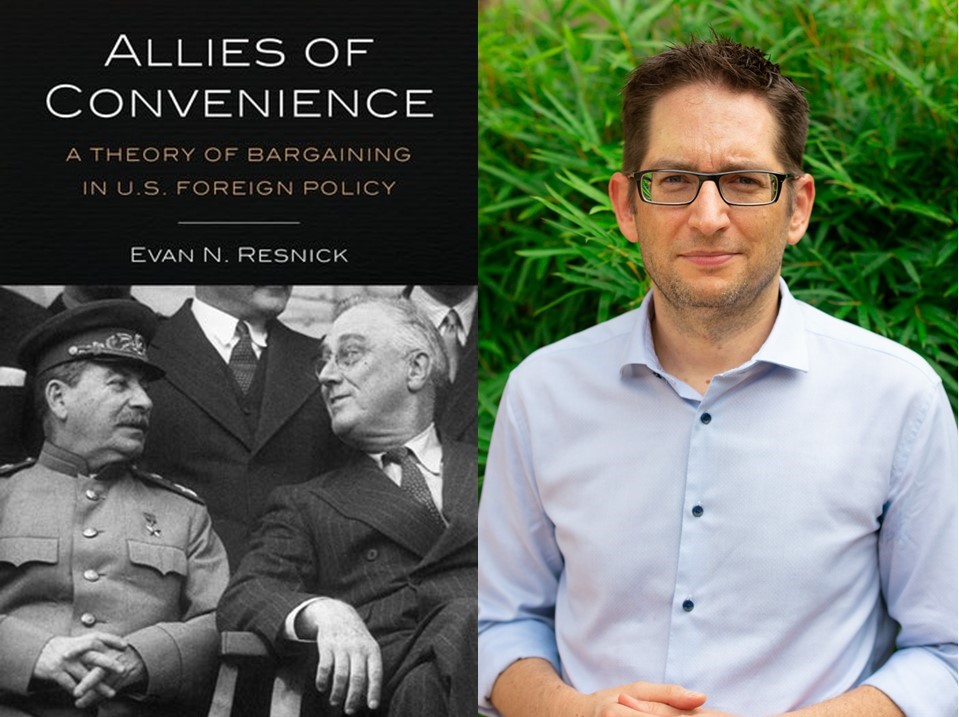Book Excerpt! Allies of Convenience: A Theory of Bargaining in U.S. Foreign Policy

“Standard bargaining theories are puzzled by the ability of allies that are not only weak but also distasteful to get so much advantage when dealing with the United States. In an important contribution, Evan N. Resnick shows that the answer lies in the open nature of the American domestic political system that allows the ally to build support within the United States and cripple the ability of the president to use his bargaining leverage. In these cases, the power of the United States does not translate into the power of the president.”
~Robert Jervis, coeditor of Chaos in the Liberal Order: The Trump Presidency and International Politics in the Twenty-First Century
In Allies of Convenience: A Theory of Bargaining in U.S. Foreign Policy, Evan N. Resnick examines the negotiating tables between the United States and its allies of convenience since Word War II. Resnick sets forth a novel theory of alliance bargaining’s and his neoclassical realist theory explains why U.S. leaders negotiate less effectively with unfriendly autocratic states than with friendly liberal ones. Read the introduction to his work to learn about the history of these alliances, from Ancient Greece to current American politics.
If you enjoyed this excerpt, make sure you enter our drawing for a chance to win a copy of this book!








